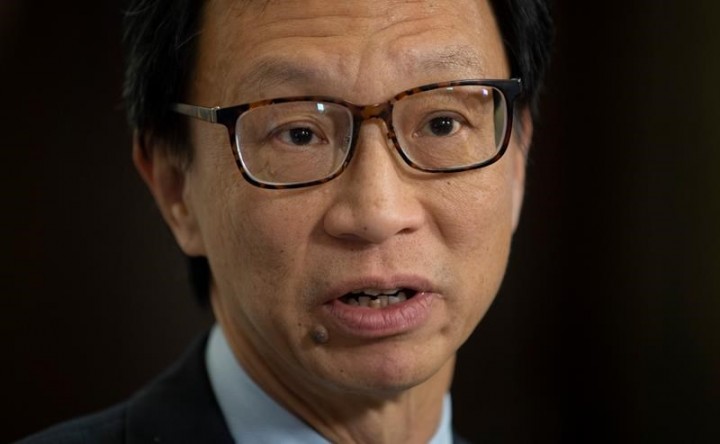OTTAWA — A Senate committee studying the future of Canada’s foreign service is pondering whether French needs to be a lower priority for recruiting diplomats as Ottawa pivots its foreign policy toward the Indo-Pacific.
The issue has emerged in ongoing hearings at the Senate foreign-affairs committee, which is looking into whether Global Affairs Canada is designed to successfully execute Canada’s foreign-policy goals.
British Columbia Sen. Yuen Pao Woo told his colleagues that many from his province have an expertise in Asian languages and cultures, but seem to be held back due to their lack of French.
“I wonder if it might be possible to rank the intrinsic savvy and skill that some Canadians have,” he suggested, in order to “counteract some of the lower scores that we get for deficiencies in French.”
At the Nov. 3 meeting, Woo argued that diplomats should still be learning French, but that this could be treated as a lower priority for diplomats than for other public servants.
“I can see why you wouldn’t do that in other departments which don’t have as much as an international exposure,” he said. “But for GAC, where being internationally oriented is the raison d’être of being in the department, you would think those kinds of attributes would be given higher scores.”
International Development Minister Harjit Sajjan, who also hails from B.C., mulled the idea of hiring anglophones with plans for them to boost their French over time.
“It’s a fault of my own for not being able to speak French, and I can make every excuse, but challenges are there,” he said.
“When you’re in the system you can start learning because you’re in the environment. Being in Ottawa for me, it may not seem like it, but my French is improving considerably — and it’s not a huge benchmark considering where I started from, but that’s one of the impediments.”
Competency in both official languages is required for some diplomatic jobs, but not all.
In June, the head of human resources at Global Affairs Canada testified that hiring is often difficult because of delayed security clearances and lengthy evaluations for proficiency in both official languages.
The topic of French in the public service has been a touchy subject in recent years, especially within the foreign service.
Documents obtained by Le Devoir newspaper in 2020 showed anglophones overwhelmingly represented in the department’s leadership.
While francophones make up 42 per cent of all Global Affairs Canada employees, that is true of just 18 per cent of its senior executives.
In April, former diplomat Pierre Guimond, now an international studies fellow at Laval University in Quebec City, told senators that this is the result of complacency within the department.
“GAC’s reputation for having little interest in operating a bilingual department is a source of concern for its current and former employees, and even for some Quebec candidates who wish to join the foreign service,” said Guimond in French.
“On my posts abroad, many of my diplomatic counterparts didn’t understand why our Canadian diplomats were not all bilingual before they went on to become fluent in a third, or even a fourth language,” he said.
Global Affairs Canada is undergoing a consultation this fall on “enhancing the vitality of Canada’s francophone and anglophone minorities, as well as the use of French, in the context of the country’s diplomatic relations.”
Meanwhile, some Indigenous groups have called on Ottawa to expand the pay bonus it offers public servants who are fluent in English and French, to include those who speak an Indigenous language.
Quebec tabloids criticized the appointment of Gov.-Gen. Mary Simon as viceregal in July 2021 because she speaks very little French. She is however fluent in Inuktitut.
Simon had previously served as Canada’s ambassador to Denmark, a job that in large part involves relations with Greenland, where a majority of the population is Inuit.
This report by The Canadian Press was first published Nov. 7, 2022.
Dylan Robertson, The Canadian Press
Related


































